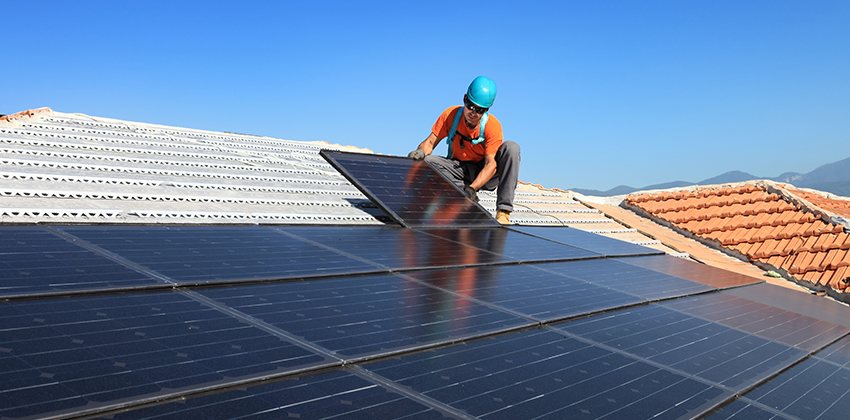The Energy Crisis in Pakistan
Pakistan is a country of over 230 million people, has long struggled with energy shortages and an over-reliance on fossil fuels. Regular power outages and rising electricity costs have become a part of daily life, significantly impacting industries, businesses, and households. To overcome these challenges, Pakistan is increasingly turning towards solar energy as a feasible, sustainable solution.
Economical Condition of Pakistan
The economic condition of Pakistan is distressed, and every year, the government inclines to add extra tariffs on electricity consumption to accomplish the monetary shortage. The current increase in per unit is a strong indication of this situation.
Why Solar Energy is Crucial for Pakistan
The adoption of solar energy in Pakistan is not just an option; it is a necessity. With superabundant sunlight, growing energy needs, and environmental crisis.
Superabundant Sunshine
Sun serves as the fuel for solar panels, and the interesting fact is, this source of energy is absolutely free. Pakistan is bestowed with plenty sunshine hours, has a bigger potential for producing electricity through solar energy. Approximately, Pakistan receives 7-8 hours of sunlight daily, a resource sufficient for producing the required electricity at the most economical rates. The installation of more solar installations is the crucial step.
Instable Political consequences
Since its founding, Pakistan has been plagued by political instability. Policies created by previous administrations either disappear or advance very slowly with each new administration. The nation still produces less than 5% of its total electricity from renewable energy sources since no government has had a stable and trustworthy policy for solar energy.
Lake of Government Assistance
Solar energy has not yet received the same amount of support from the Pakistani government as other renewable energy sources like hydroelectricity. Solar enterprises may find it challenging to obtain financing and authorizations as a result. But now Pakistan is enhancing the solar energy sector by promoting the local manufacturing of solar panels and components.
Solar Energy Is the Best Alternative of Electricity
Solar energy has the latent to address the energy crisis by providing an alternative source of electricity. The importance of solar energy in Pakistan cannot be overstated because it offers an opportunity to reduce dependence on traditional expensive energy sources while also encouraging sustainability and environmental responsibility.
How Does Solar Energy Work
Solar panels are made up of photovoltaic cells that absorb sunlight and generate direct current (DC) electricity. This electricity is then converted into alternating current (AC) by an inverter, which is suitable for household or industrial use. With the right setup, solar energy can power everything from small appliances to entire buildings.
Solar Energy a Sustainable Solution
Solar energy presents a sustainable solution that can address Pakistan’s energy challenges. By investing in solar energy, Pakistan can secure its energy future and improve the quality of life and non-stop electricity supply without loadshedding for its citizens.
Technological Advancements in solar energy
With rapid advancements in solar panel technology, the efficiency and affordability of solar energy systems are expected to improve even further. This will make solar energy even more reachable to the people of Pakistan.
Pakistan produces over 60% approximately of its total power using fossil fuels, such as gas and furnace oil. In the fiscal year 2022-24, the government of Pakistan paid nearly 95 billion rupees per month to purchase gas and furnace oil for electricity production. Such extensive expenses on importing fossil fuels pointedly impact the country’s total economy. Subsequently, the citizens face inflation in the form of higher electricity bills and increased prices for indispensable items.
Solar Energy is defense cover Against Inflation
Solar panels only cost you once but the long-term benefits are significant. unlike fossil fuels which repeatedly rise in price and result in higher electricity rates. In Pakistan, electricity rates directly influence the prices of other crucial items, as production facilities rely on electricity. When production facilities switch to solar energy, they no longer need to worry about power outages and higher monthly tariff rates.
Solar Energy an affordable Source
With falling prices of solar panels and government incentives, solar energy is becoming more affordable than ever. These advancements contribute to making solar panels a more appealing and practical option for a wider range of applications.
Attractive Accessibility
Not everyone can build its own power plant using coal or fossil fuels, but solar energy is more accessible, and anyone can simply access it by installing solar panels on their roof. Solar installations don’t demand significant apparatus for setup. Additionally, there are no limitations preventing citizens from having their own power plant on their rooftops.
Job Creation and Economic Progress
The solar energy area has the potential to generate thousands of jobs in manufacturing, installation, maintenance, and research. Solar Energy can contribute to economic growth and improve livelihoods, mostly in rural areas where energy access is inadequate.
Rural Electrification
Solar panels can be a game-changer for rural electrification, where ranging the national grid is overpriced and impractical. Off-grid solar systems can provide electricity to remote areas, enlightening quality of life and enabling economic opportunities in underserved areas.
Low Maintenance Costs:
Solar Panels usually have lower maintenance expenses. Once installed, it requires little care to operate properly. Regular cleaning and periodic examinations are typically enough to keep the system running smoothly. In addition, leading solar manufacturers offer warranties that can last up to 20 years or more, giving homeowners and businesses world.

